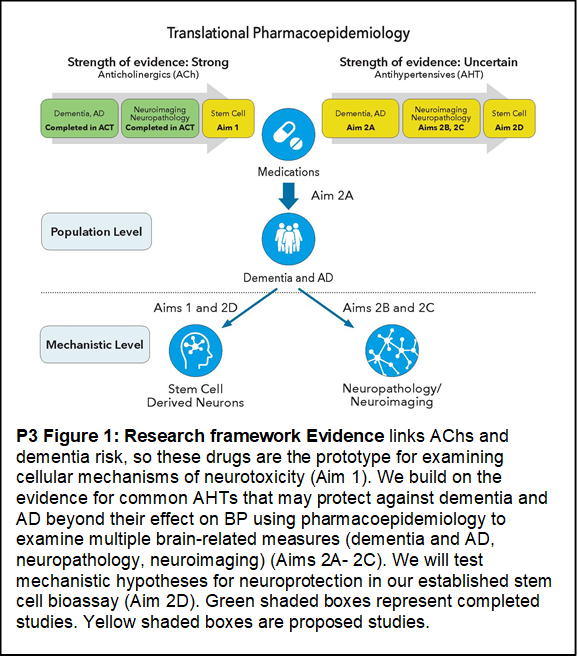Project 3: Translational Pharmacoepidemiology
Many patients with chronic conditions take medications over several years, often beginning in mid-life, to help achieve consistent levels of the medication in their blood. Additional evidence is needed to understand whether effects of these medications are toxic or protective for the brain. Pharmacoepidemiology is a valuable approach to examine medication-dementia risks because of the long medication exposure periods of chronic regimens and the long latent period of dementia, which presents a major challenge for clinical trials.
This project aims to connect what is currently known about the effects of certain medications with emergent information about brain cell development to understand how drugs that are commonly used by older adults for blood pressure, bladder problems, sleep problems, and other conditions may affect the progression of cognitive decline. The findings from this study have the potential to shape recommendations about medication prescribing for these common conditions.
The project team is leveraging many things that make the Adult Changes in Thought (ACT) Study unique: a large study population, detailed information on medications and health conditions, and associated pathology data. The project focuses on translational pharmacoepidemiology, which means shifting the paradigm of dementia pharmacoepidemiology to include a translational approach by integrating traditional approaches with molecular-based stem cell technology to identify cellular mechanisms that result from exposure to medications.
A pivotal and innovative feature is the creation of a new human stem cell-based molecular assay to directly test whether a class of drugs called anticholinergics may have toxic or protective effects on the brain. Combined with robust new analyses that use state-of-the-art statistical techniques, the project will increase scientific understanding of drug relationships with brain-related measures.



